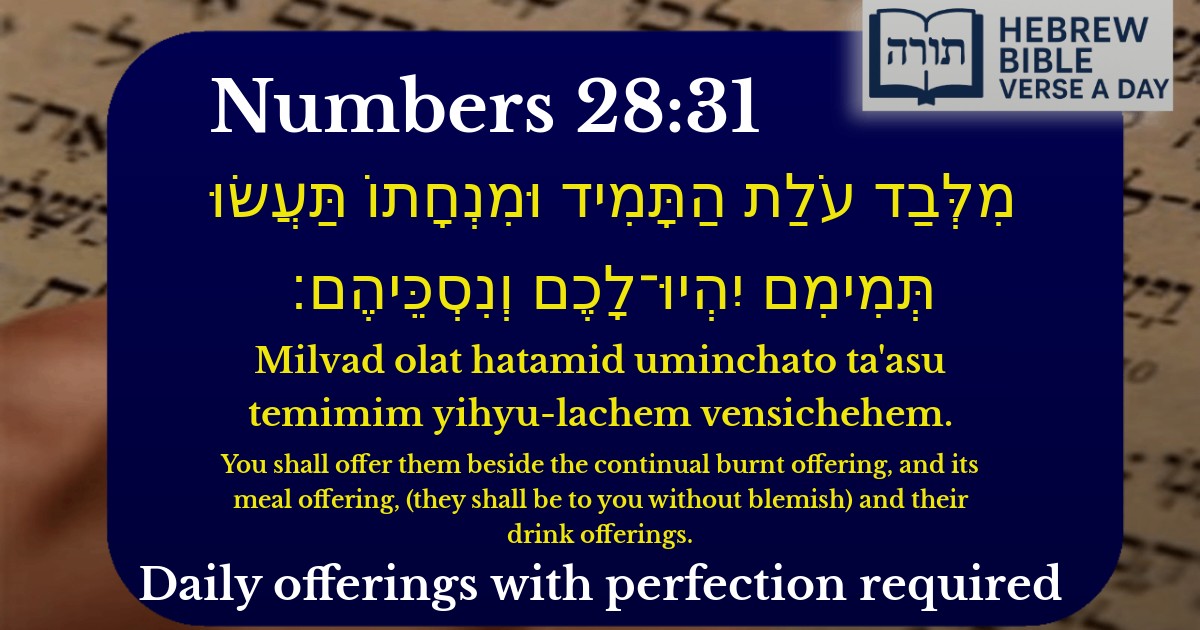Join Our Newsletter To Be Informed When New Videos Are Posted
Join the thousands of fellow Studends who rely on our videos to learn how to read the bible in Hebrew for free!
Hebrew Text
מִלְּבַד עֹלַת הַתָּמִיד וּמִנְחָתוֹ תַּעֲשׂוּ תְּמִימִם יִהְיוּ־לָכֶם וְנִסְכֵּיהֶם׃
English Translation
You shall offer them beside the continual burnt offering, and its meal offering, (they shall be to you without blemish) and their drink offerings.
Transliteration
Milvad olat hatamid uminchato ta'asu temimim yihyu-lachem vensichehem.
Hebrew Leining Text
מִלְּבַ֞ד עֹלַ֧ת הַתָּמִ֛יד וּמִנְחָת֖וֹ תַּעֲשׂ֑וּ תְּמִימִ֥ם יִהְיוּ־לָכֶ֖ם וְנִסְכֵּיהֶֽם׃ {פ}
Parasha Commentary
📚 Talmud Citations
This verse is not quoted in the Talmud.


Context in the Torah
The verse (Bamidbar 28:31) appears in the section detailing the korbanot (offerings) brought on Rosh Chodesh (the New Moon). It emphasizes that these additional offerings must not replace the Korban Tamid (continual daily offering) but must be brought alongside it.
Rashi's Explanation
Rashi (Bamidbar 28:31) clarifies that the phrase "milvad olat hatamid" ("beside the continual burnt offering") teaches that the additional Rosh Chodesh offerings do not exempt one from bringing the daily Korban Tamid. Both are obligatory, and one does not substitute for the other.
Rambam's Perspective
In Hilchot Temidin U'Musafin (1:3), the Rambam codifies this principle, stating that the Korban Tamid takes precedence over all other communal offerings. Even on days when additional sacrifices (like those of Rosh Chodesh or festivals) are brought, the Tamid must never be omitted.
Significance of "Temimim" (Without Blemish)
The verse specifies that the offerings must be "temimim" (unblemished). The Talmud (Menachot 27a) derives from this that any offering with a disqualifying blemish is invalid. The Rambam (Hilchot Issurei Mizbe'ach 2:1) elaborates that this applies to all sacrifices, reinforcing the requirement for physical perfection in animals dedicated to divine service.
The Role of the Meal and Drink Offerings
Spiritual Message
The Midrash (Bamidbar Rabbah 21:21) connects the Korban Tamid's consistency to the unwavering devotion required in serving Hashem. Just as the daily offering is brought regardless of other obligations, our commitment to Torah and mitzvot must remain constant, unaffected by additional spiritual opportunities or challenges.